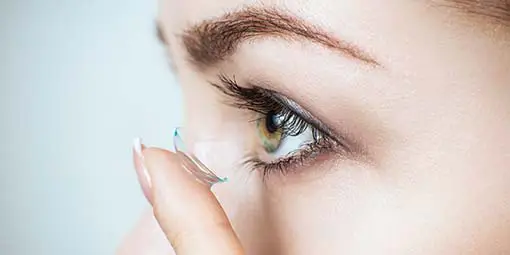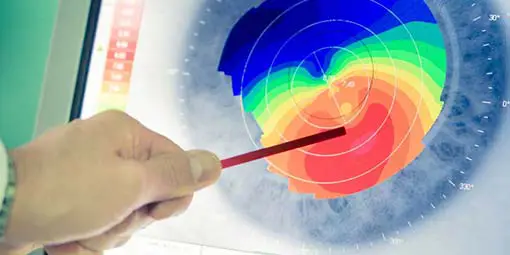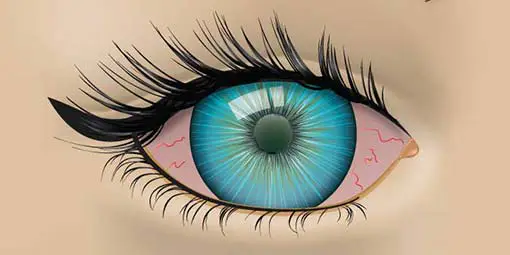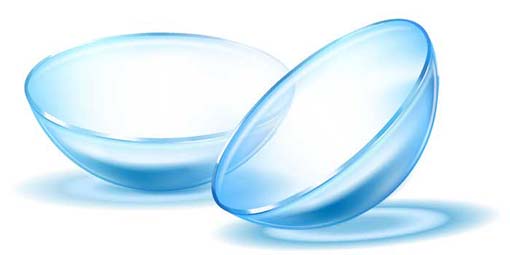Are Contact Lens And Eyeglass Prescriptions The Same?
19-06-2023
Contact Lens Prescriptions Differ From Eyeglass Prescriptions
When it comes to vision correction, many individuals turn to either eyeglasses or contact lenses to help improve their eyesight. Both options have their benefits and considerations, but one common question that arises is whether a contact lens prescription differs from an eyeglass prescription. While the goal of both prescriptions is to enhance vision, there are some key differences between the two. Let's explore the dissimilarities to gain a better understanding.Eyeglass Prescriptions
Eyeglasses are a popular choice for vision correction and are typically made up of lenses that are placed in a frame and worn on the face. An eyeglass prescription, also known as a spectacle prescription, provides specific details about the lenses needed to correct the vision of an individual. These prescriptions are typically written by optometrists or ophthalmologists after a comprehensive eye examination.An eyeglass prescription includes several elements:
- This measurement indicates the lens power required to correct nearsightedness (myopia) or farsightedness (hyperopia). It is denoted with a plus sign (+) for farsightedness and a minus sign (-) for nearsightedness.
- This measurement determines the lens power needed to correct astigmatism, which is a condition that causes blurred vision due to an irregularly shaped cornea. It may be accompanied by an axis value, denoting the orientation of the astigmatism.
- This value is provided for astigmatism correction and indicates the orientation of the cylindrical lens required.
- This measurement is typically mentioned for individuals who need correction for presbyopia, an age-related condition that affects near vision. It indicates the additional power needed for reading or other close-up activities.
- Prism corrects double vision (diplopia).
Contact Lens Prescriptions
Contact lenses, on the other hand, are directly placed on the surface of the eye to correct vision. Due to their proximity to the eye, contact lens prescriptions require additional information that differs from an eyeglass prescription. A contact lens prescription includes the same elements as an eyeglass prescription, but also includes specific measurements related to the fit of the contact lenses.In addition to the elements found in an eyeglass prescription, a contact lens prescription includes:
- This measurement determines the curvature of the contact lens to match the shape of the cornea.
- This value represents the size of the contact lens and ensures a proper fit on the eye.
- The specific brand and material of the contact lens are indicated to ensure the prescribed lenses are obtained.
- Contact lens prescriptions typically have an expiration date due to the importance of regular eye examinations to monitor eye health and ensure accurate vision correction.
Please note that a contact lens prescription is not a substitute for an eyeglass prescription. Since contact lenses rest directly on the eye, they require a more precise fit and specific measurements to ensure comfort, proper vision correction, and optimal eye health. Therefore, it's crucial to obtain a contact lens prescription from an eye care professional, even if an individual already has an eyeglass prescription.
While both eyeglass and contact lens prescriptions serve the purpose of correcting vision, there are notable differences between the two. Eyeglass prescriptions primarily focus on lens power and correction, while contact lens prescriptions include additional measurements for proper fit and eye health. It is essential to consult with an eye care professional to obtain the appropriate prescription for your vision needs, whether you choose eyeglasses or contact lenses. They will conduct a comprehensive eye examination and determine which option is most suitable for you based on your visual requirements, lifestyle, and overall eye health. Remember, both eyeglasses and contact lenses have their advantages and considerations. Eyeglasses offer convenience, easy maintenance, and a fashion statement, while contact lenses provide a more natural field of vision, freedom of movement, and the option to participate in sports and other physical activities without obstruction. Regardless of your choice, always prioritize regular eye exams and follow your eye care professional's recommendations. They will ensure that your prescription is up to date, monitor any changes in your vision, and address any concerns or issues you may have.
Schedule An AppointmentFYEyes Blog Posts

Reasons To Consider Scleral Contact Lenses
Scleral contact lenses offer numerous benefits, especially to those with unique needs.

Do you need a special eye exam or eye test if you wear, or wish to wear, contact lenses?
Contact lens wearers require special tests and assessments.

The Benefits Of Scleral Contact Lenses
cleral contact lenses redefine visual clarity and comfort for individuals with unique ocular needs.


Adult Eye Exams
Our advanced eye exams consist of 25+ modern tests and digital scans to assess eye health, function, and visual acuity.

Child Eye Exams
Give your child a clear future with an annual eye exam from our experienced Edmonton optometrists.

Senior Eye Exams
Maintain your vision through your golden years with gold standard eye care from the optometrists at our Edmonton eye clinic.

Contact Lens Eye Exams
Our eye exams for contact lens wearers include test and digital scans to assess eye health, function, visual acuity, and lens fit.

Diabetic Eye Exams
Managing diabetes requires regular eye exams to ensure that diabetes is not causing irreversible vision loss.

Dilated Eye Exams
Dilating the eyes enables our Edmonton optometrists to see more of the eye so that you many never see less.
Our Edmonton Eye Exams Are Comprised Of 4 Phases Of Evaluation

1. Eye Exam Pre-Testing
Corneal Thickness | Intraocular Pressures | Visual Field
Pre-testing is a detailed process that gathers all necessary information for the optometrist in advance of the optometrist-administered eye examination. This process involves completing a detailed patient history, as well as a series of standard tests. Pre-testing is an essential part of the comprehensive eye exam process, providing valuable information and visuals for both the optometrist and the patient.
More About Pre-Testing »
2. Advanced Diagnostic Testing
Retinal Photography, OCT, Topography
eye-deology Vision Care differentiates itself from other clinics by having the most advanced modern diagnostic specialty testing equipment. Specialty equipment, such as a wide-angle high-resolution retinal imager, Optical Coherence Tomography (OCT), Humphrey Visual Field Analyzer and corneal topographer, ensures that patients receive the best comprehensive eye care.
More About Advanced Testing »
3. Optometrist Examination
Health Assessment & Disease Diagnosis
eye-deology Vision Care Edmonton optometrists perform a multitude of tests and assessments to evaluate ocular health, eye coordination, and visual acuity. In addition, they also evaluate the results of the tests and scans performed during pre-testing. As part of patient education, our optometrists also take the time to show and explain results to patients.
More About Doctor Exam »
4. Eye Glass Consult
Prescription | Lens Selection | Digital Fitting
If you require corrective lenses to improve your vision, our licensed opticians will customize their fit to your unique attributes, needs, lifestyle, and budget. Our opticians are happy to provide you with information about the latest eyeglass frame and lens technologies available so you can make informed decisions and begin seeing and looking your best.
More About Eyewear Consult »